Was your child diagnosed with dyslexia? Here is what you need to know as you begin your dyslexia journey.
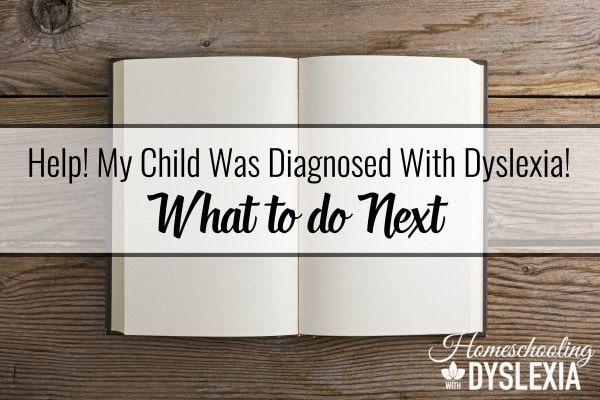

If you would prefer to listen to this post, click the play button above.
I get a lot of emails from concerned parents who have recently discovered that their child is dyslexic. Their heads are swimming with questions; what next? will my child ever read? how will they go to college or get a good job?
I clearly remember the day our oldest received his dyslexia diagnosis. I never knew that intelligent people could struggle with reading, writing and spelling. Ironically, the day our son was diagnosed, my husband was also unofficially diagnosed. It took some time for the pieces to fall into place and for us to gain the knowledge we have today about this genetic wiring difference in the brain called dyslexia.
The main reason that this site was started was to help people on their unique dyslexia journeys.
I understand the panic, the disappointment, the fear and the worry. If you are just beginning your dyslexia journey, this is what you need to know.
Get Educated
For parents of kids with learning struggles like dyslexia, knowledge truly is power. Whether your kids are enrolled in a public, private or home school, you need to understand what dyslexia is in order to provide the right kinds of support. Fortunately, there is way more reliable information available today than there was 20 years ago when our family started learning about dyslexia.
Best Resources for Dyslexia Education
Our Resources Page is full of helpful and reliable resources for learning about dyslexia but if I were starting out all over again, these resources would be top on my list:
Overcoming Dyslexia by Sally Shaywitz is by far the most comprehensive and reliable book on dyslexia available today. Reading it, literally changed the course of our journey many years ago. Based off of research conducted by Dr Shaywitz and her colleagues at Yale University, Overcoming Dyslexia will help you build a strong foundation in your understanding of what dyslexia is – and isn’t. I hefty 414 pages, I have referenced this book again and again in my quest to help my kids with dyslexia.
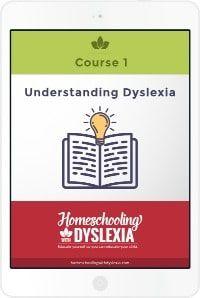
My Parent Dyslexia Classes – specifically Course 1: Understanding Dyslexia.
I created my online video-based parent classes to help families to more fully understand the many facets of the dyslexic mind. Dyslexia affects far more than reading! We have been on this dyslexia journey for 20 years and have not only read a ton on the subject, but lived it as well! Our parent classes combine both research-based information and real life experience raising and educating kids with dyslexia.
Learn all you can about dyslexia and teach your kids as they need to know. You will be your child’s advocate until they can learn to advocate for themselves.
Get Help
Finding the right kinds of help for your unique situation is important.
Hiring an Educational Therapist or Dyslexia Tutor
If your child is older, say 9+, and is beginning to notice that they are not learning like other kids their age or are struggling significantly in school, hiring an educational therapist or certified dyslexia tutor is one of the best things you can do to help your child get the help they need with reading quickly.
Because tutoring is often expensive ($50-$75/hour) there is a lot of talk about how to get the public schools to both test and tutor our dyslexic kids. If you try this route be prepared for a long fight. For the purpose of this post and in the interest of helping families just starting out on their dyslexia journeys, my advice would be to either hire your own dyslexia tutor or teach them yourself.
Read more about teaching kids with dyslexia to read.
There are some families who have been able to get services through the schools but they are few. In the interest of getting your child the help they need as soon as possible, I don’t recommend this route.
Read this article on how to find free or inexpensive dyslexia tutoring.
Getting Tested for Dyslexia
There is no one test for dyslexia, rather a battery of tests that need to be interpreted by someone who understands the nuances of dyslexia. I recommend testing under the following circumstances:
- Your child is losing confidence as a result of his or her dyslexia and would benefit from seeing the results of their IQ test. People with dyslexia do not lack intelligence!
- Concerned family members are doubting your current course of action (ie blaming your parenting or education choices) with your dyslexic child.
- Your child is not getting the services he or she needs in school and testing would reveal dyslexia and thus get that ball rolling.
To learn more about how and when to get tested for dyslexia, read this post:
Find Community
I’ve tried to keep this post as simple as possible, however, receiving a dyslexia diagnosis can still be overwhelming. One crucial component to your success is to find the companionship of other families who are on the journey with you. When I began being open about our kids’ dyslexia, I was pleasantly surprised by how many other families were also experiencing the same things.
Homeschooling With Dyslexia Facebook Page: This is my Facebook Page. Whether you are homeschooling or not, you will find encouragement and support from experienced parents of dyslexics like you.
For example, look at this amazing list of comments from the members of the Homeschooling With Dyslexia FB page on what to do when your child is diagnosed with dyslexia:
- Read, learn, mourn and move on. It’s not the end of the road, it’s just learning to drive down the road a different way – same goals and direction, just a different car. Enjoy the differences in everyone. Teach your child to advocate for themselves, and let them see you fighting for them, standing with them and rejoicing for them when they succeed.
- Be patient and embrace out side of box thinking as a gift.
- It will be okay. It will be hard. It will take patience but your child will be ok. And so will you. Educate yourself. Fight for your child. Embrace the gift that is dyslexia.
- Take a deep breath. Your child is not broken. Ask for help. You are not alone. Things will get better.
- I was relieved to learn of tons of highly successful CEO’s, inventors, writers, etc that are themselves dyslexic. That there is just a special path for these learners, to keep things very positive and look at it as a total gift. Yes, the learning process is different, BUT what they offer the world is different too. Dyslexia is a gift.
- Our son wants to be an engineer, so when we found out about his dyslexia, we started to research aerospace engineers with dyslexia and found several who have done AMAZING things with NASA and JPL. Knowing this has made my son proud of his dyslexia! He sees it as a strength!
- Educate yourself, educate your child and educate family members about dyslexia. Then like a child at Christmas, try to guess what gifts your child has! Help them grow with their gifts and be prepared to be amazed.
- Celebrate! As a dyslexic who was not given a clear diagnosis until college and three daughters-one diagnosed and two with mild forms, we realized they it is a blessing in many ways. I celebrated because I learned that I am not broken, not stupid, very capable and have a lot to offer. Once we realize that these kids all have high IQs and extremely creative we realize that it is not our kids that are broken just the system that is trying to educate them. Step back, take another look at your kid and see how amazing they are and that you are just going to have to work a little harder to get them where they are going, but they will get there.
- Do not hide it from your child. Learn about it together. Give him a voice. Teach him how to advocate. Talk about it often. Then talk about it some more. Point out other dyslexics so they won’t feel alone. Find a community. Join all of the dyslexia Facebook groups you can to learn from others. After you have grieved and moved on, work to help change the system. Give yourself a break.
- Get the books – Overcoming Dyslexia by Sally Shawitz, Dyslexia Empowerment Plan by Ben Foss.
- It’s SO important to connect with other families in the same situation for support. It’s key for your kid to know other dyslexic children and for you to be among parents facing similar parenting and educational challenges. Start a support group if you can. I did.
- We don’t homeschool, but we are in a wonderful alternative school with a no homework policy. This is key for my daughter’s mental health and ability to do what she’s good at after school (roller derby, cooking, photography, etc.)
- The vast majority of dyslexic people are average to high IQ. This makes it particularly frustrating when their ability to process the written word doesn’t match their innate curiosity and intelligence. Once you learn more about dyslexia, you’ll start to see that his gifts are often not “in spite” of dyslexia, but directly related to his dyslexic brain. Excellent books to read to ground you in these ideas are “The Dyslexia Empowerment Plan” and Dyslexic Advantage.
- READING REMEDIATION THERAPY: This is essential. You want to find teachers trained in Orton-Gillingham methodologies to teach your child read. You’ll begin to learn how differently dyslexic children must be taught. It is explicit, multi-sensory, everything must be broken down and the rules explicitly taught for our kids to learn to read with their eyes.
- AUDIO BOOKS: My daughter mostly relies on audio books rather than eye reading. Over the years, we have come to understand that eye reading was not the only or best way for her to ingest information and stories. That shift has been LIFE CHANGING for her, and for us. Get your kid signed up for Bookshare and Learning Ally ASAP. You, as a parent, should connect withLearning Ally Parent Chat.
- Continue to educate yourself because the road is winding and changes a lot as your kid grows up. Good luck!
- Feel happy. You are no longer lost. You can work out how to encourage your child best. There are lots of strategies, technology, learning aids, reading schemes to help your child achieve their academic potential. Don’t forget to also nourish their well- being and soul.
- It is a gift! Use audiobooks so the child can access language above their reading level but at their comprehension level, and also foster a love of literature, separate from the struggle of reading.
- Break things down into small pieces. Smaller pieces than you thought could exist. Connections that are made in the typical brain are frequently not being made and need to be pointed out explicitly.
- Don’t stress if you have to change schools. Your child wild flourish in a environment that understands her needs
- It is overwhelming, you will get through it. It’s okay to cry, it’s okay to say the word DYSLEXIA. You may go through some stages similar to mourning. If you feel you are in quicksand, ask for help and wait for others to assist. Most of all embrace it and allow it to make you shine.
- Embrace reading aloud to your child, audiobooks, and voice-to-text!
- Breathe. It’s just a different way of doing things, approaching things. Encourage, be positive, and look for the adaptations that really work for your learner. Limit screen time. Load up on audiobooks and tactile learning opportunities!
- Two steps forward one step back, you are not alone, fight for your child, read a lot and it is real! Ask questions and educate yourself! You can do it…you may have hard days but the next day will be good. Focus on their strengths!
- Dyslexia involves more than just reading. It also brings many, many gifts with it. Get a tutor to work on the reading…as a parent you get to help them grow their newly diagnosed “super powers.” Rely on technology for the reading, but embrace the little person who is SO. MUCH. MORE. than a diagnosis, especially a diagnosis as often misunderstood as dyslexia.
- Let them learn at their own pace, it’s when they grow the most.
- Look up all the famous people that have it and show them.
Other excellent FB pages are:
Homeschooling Dyslexic Kids (not necessarily only for homeschoolers)
The Big Picture: Rethinking Dyslexia (great film, too),
One Thing You Need to Know
Probably the most important thing that I have learned over the course of our 20 year dyslexia journey is that people with dyslexia are not disabled. Oh believe me, I know it can look like a disability, especially when you’re trying to teach them to read, write and spell. People with dyslexia have a unique set of strengths that enable them to do amazing things in science, art, business, politics etc. These unique strengths are a direct result of the brain wiring that makes reading and writing so difficult.
Be encouraged, get educated, and get connected!
How about you? What would you suggest to a family with a brand new dyslexia diagnosis?
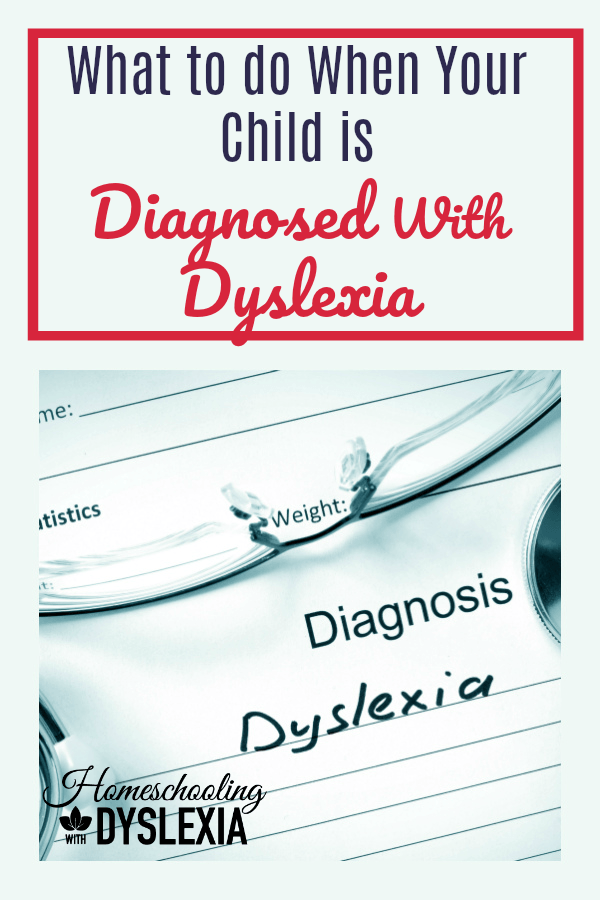

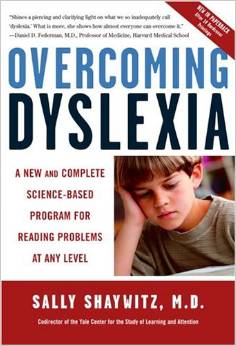
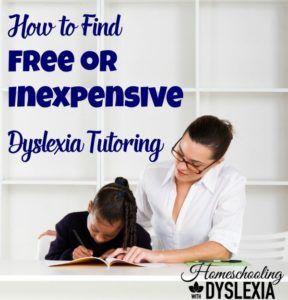
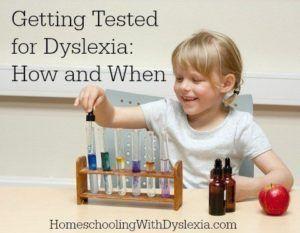





Thank you. I wish that I could have read this three years ago!
I note the comments about mourning. There is grieving involved with the diagnosis particularly in a book loving family. Worry that the child will never read and then that they may read but may never enjoy reading. Over time, we have found that we have read aloud books or listened together to audio books and so the discussion around books has actually become richer. I guess reading posts about four year olds reading or children who read fast will always sting a bit but conversations about literature certainly don’t need to be lost.
Exactly Sarah! Life with dyslexia looks different but it can be just as impacting – if not more. 🙂
My 7 year old was diagnosed last school year. I did not grieve, I celebrated an answer to why she was working so hard and getting no where. I myself am a 1st grade teacher at the same school. Her teacher was awesome! She kept encouraging C to do her best and would modify test even before the results. We both knew there was something wrong. C knew something was wrong also. This year, she is in 1st grade again. C is now getting 100’s on her test. She goes to EC and loves school. She knows that the struggle will be for life and it is going to take a lot of work. I encourage her everyday to do her best. She is my fighter and I love watching her confidence grow with each passing day. When the diagnoses is dyslexia, it is not the end of the world, but an answer. Celebrate the fact you now know how to fight!!
I love that Sarah – “When the diagnosis is dyslexia, it is not the end of the world, but an answer. Celebrate the fact you now know how to fight!”